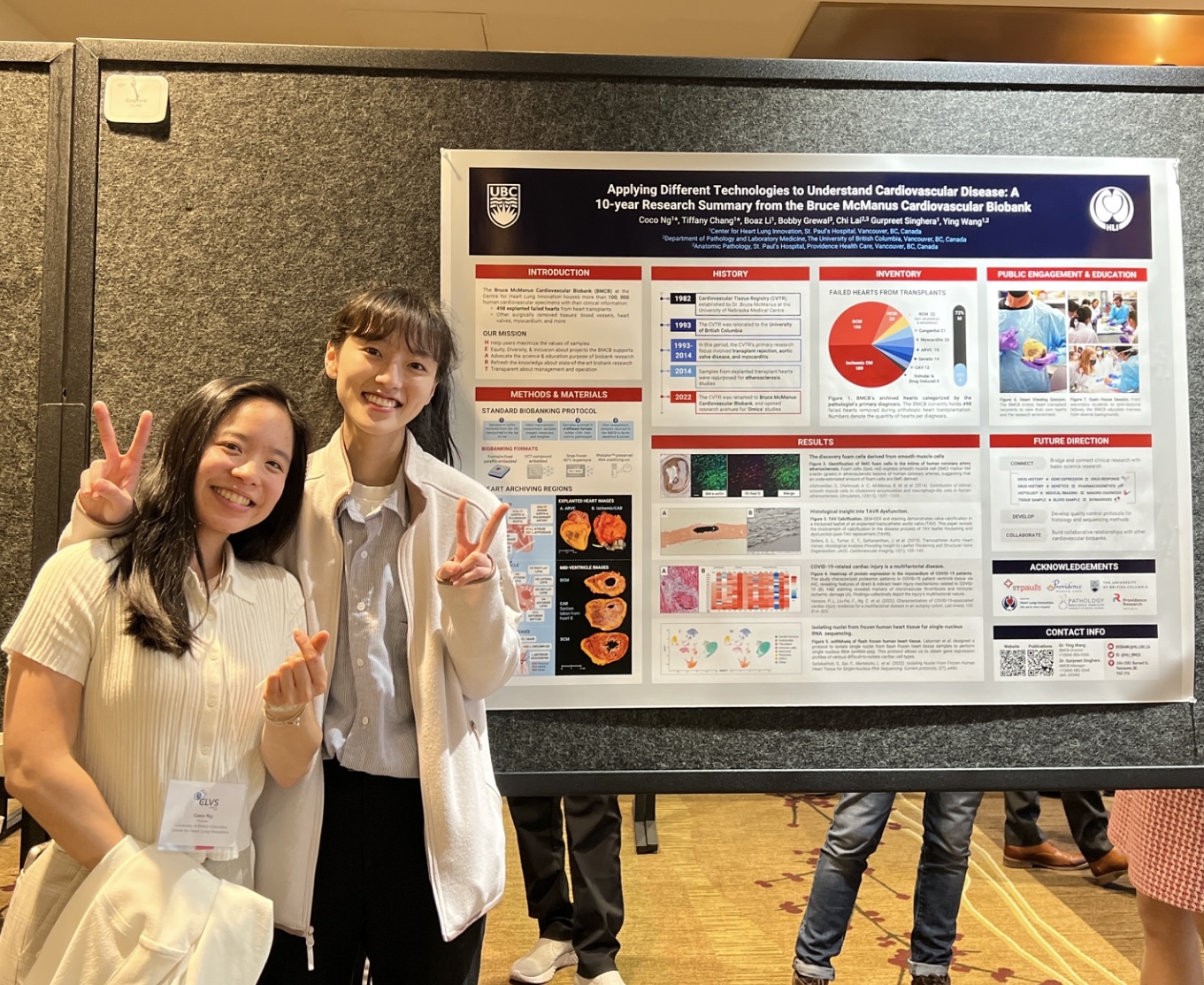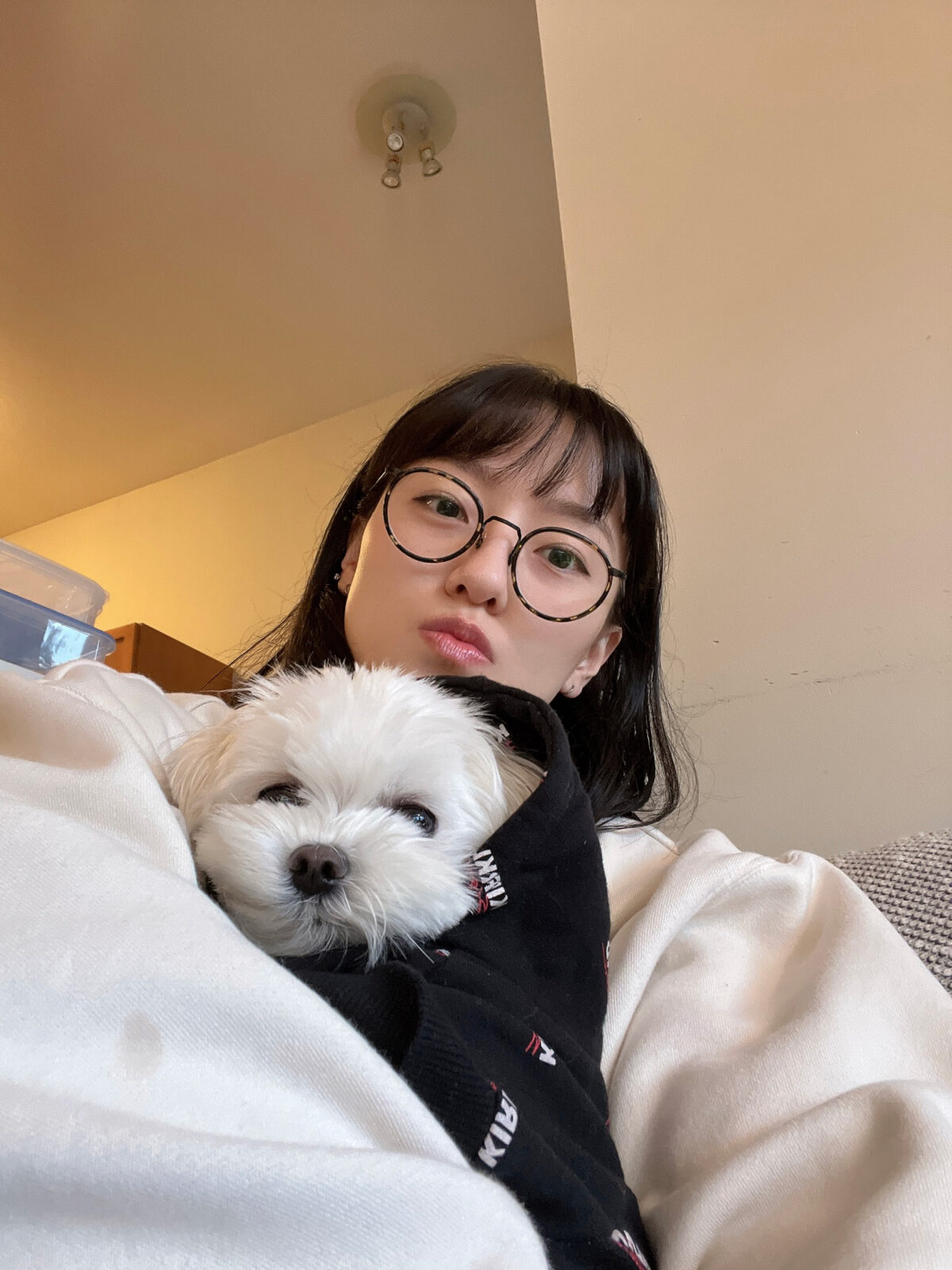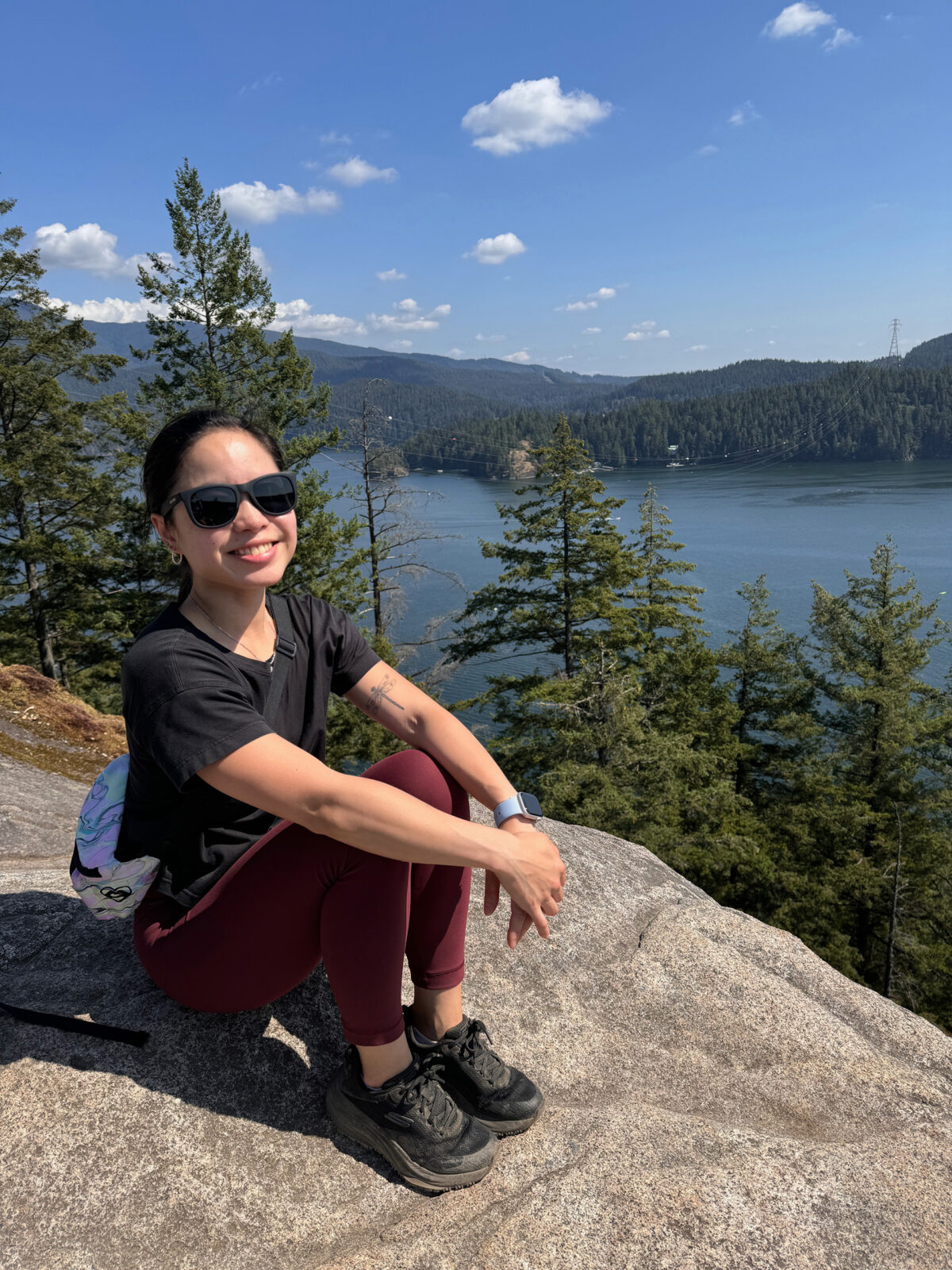
HLI’s Bruce McManus Cardiovascular Biobank (BMCB) collects human cardiovascular tissue specimens for research purposes. These anonymized and fully consented samples are preserved to standard biobanking protocol and are provided to researchers at the local, national, and international levels for their projects. We sat down with Coco Ng and Tiffany Chang, Biobank Technician and Biobank Assistant, to discuss their work at the BMCB and beyond.
What are your educational backgrounds?
Coco Ng: I have a Bachelor of Science Degree in Food, Nutrition, and Health, and I did a co-op here at HLI in my third year of undergrad. After I graduated, I continued working here as a laboratory technician thanks to that experience.
Tiffany Chang: I also have a Bachelor’s Degree and was a co-op student here! I just graduated in June, and I majored in Behavioral Neuroscience.
What is a typical day like for you at HLI?
CN: I should start by explaining what a biobank is. Imagine a library, but instead of books, we have cardiovascular specimens we collect, like valves and appendages from surgeries or explanted hearts from heart transplants. We store and preserve them at the biobank so that researchers can use these samples for their own research projects. For our everyday duties, we would go to the operating room and we would collect samples from cardiac surgery, and then we would biobank them and process them.
How long do the specimens last for?
CN: We store them indefinitely! Right now, we have roughly 19,000 specimens stored with us.
TC: We still have hearts from the 1960s or 70s…
CN: We have a range of hearts, from infants to adults, with a variety of heart conditions like congenital disease, congestive heart failure, and a lot of rare diseases, so we keep basically anything and everything. We work with the Anatomical Pathology department, where they help us with writing pathology reports on the specimens. That gives us a review or a macroscopic analysis of what the sample is, which could be useful and helpful for researchers in the lab.
What is one of the proudest moments of your career so far?
CN: For me, it’s being involved with my first paper. This was during the pandemic, so COVID was still relatively new, and having my name on a paper about its effects on the heart and having it published was my proudest moment.
TC: My Research Day presentation was a really interesting project for me because I majored in the social sciences, so there wasn’t much that I applied from what I studied to the biobank until that project, because it was survey-based research. It was something new that I tried and a big initiative that I took.
CN: It was such a big audience too. Must’ve been nerve-wracking.
TC: I didn’t win any awards for it, but I think for each presentation that I do, I just try to make people laugh at least once. Why not make things fun, you know?
What do you enjoy most about working at HLI?
CN: I would say the social aspect to it: the collaborations we do with researchers here, the sense of community we have… With research, sometimes people are very secretive about their projects. But we’re very open, we have a willingness to share and collaborate, help each other with our research, and outside of the professional environment, everybody here is super fun to be around.
TC: I think there’s a lot of diversity here. Academically, we have a lot of different areas of research, like lung, heart, brain, people in the clinical or basic sciences, encompassing a lot of fields. And in our social activities, you can also see diversity in the different cultural events we have, like the Vaisakhi and Lunar New Year celebrations.
Traditionally, the heart and mind are known as being opposites, standing for emotion and reason respectively. So as a behavioral neuroscience student, what attracted to you to the BMCB and studying the heart, Tiffany? Are there overlaps between the two fields?
TC: I’m not actually a big supporter of opposites or the idea of two separate dichotomies. There’s certainly overlap because initially, I was very interested in the nervous system, but that applies to the heart, too, because the heart has its own nervous system. If you watch a heart transplant, when the heart is taken out, the heart’s still beating because it has its own circuits. The neurons are in there firing by themselves without any brain stimulation. So that’s where my interest comes from. I was also a patient here myself since my heart had an irregular rhythm, so I really wanted to contribute to this community.
Having gone to school in Hong Kong and being bilingual, Coco, do you feel that being intertwined between cultures helps us bridge the gap between things more naturally? Does that connect at all to the BMCB and HLI’s knowledge translation efforts?
CN: I think the cultural experiences that I have from Hong Kong and here in Vancouver has definitely helped in terms of interacting with different types of people. Patients are always from various cultural backgrounds since Vancouver itself is very multicultural. I was surprised at how diverse the city was when I first came here and it made it easier to acclimatize myself. It contributes to what I mentioned about collaboration: our researchers and clinical department being open makes for a smoother process for when information and samples move through the pipeline. Because we’re in constant communication with everyone, that transparency makes the knowledge translation more prominent.
What are your hobbies outside of research?
TC: I have a lot of hobbies! I really like graphic design, photography, videography, and I’ve been practicing taekwondo since I was four. I’m also a provincial referee for taekwondo events.
CN: I like going to the gym; it’s kind of an obsession, actually. I also like to read fiction; I recently started the fantasy series Throne of Glass which was released in 2012.
TC: You can always find her somewhere outside, either in the gym or hiking some mountain.
CN: I like to be outdoors! It’s all about the adrenaline-seeking stuff. Anything more dangerous is more fun! Being inside gets boring, unless I’m really tired.
TC: Yeah, that’s the thing. She can’t stay home because it’s too unproductive and peaceful. Sometimes I just sit on my couch and I hug my dog Binu and I just stare at her.
CN: What does your dog’s name mean?
TC: …It means soap in Korean.
CN: That’s so cute!


